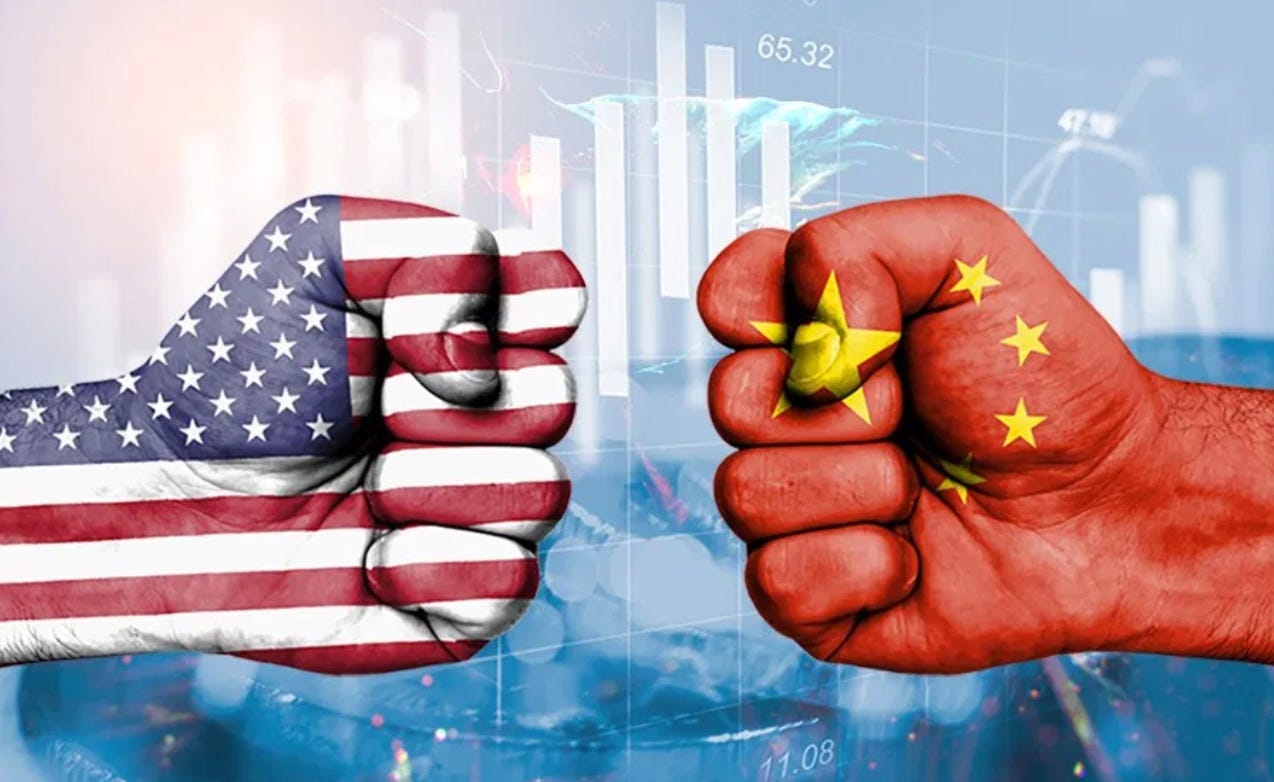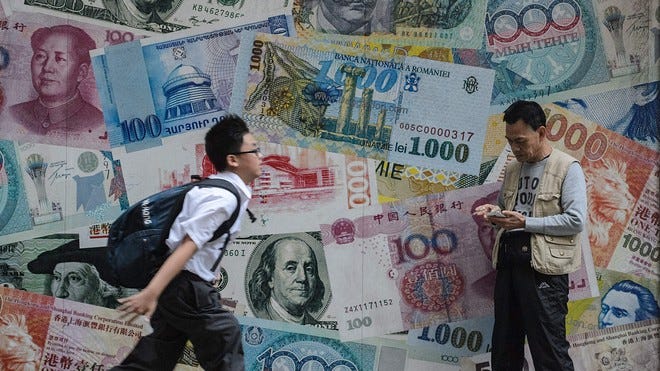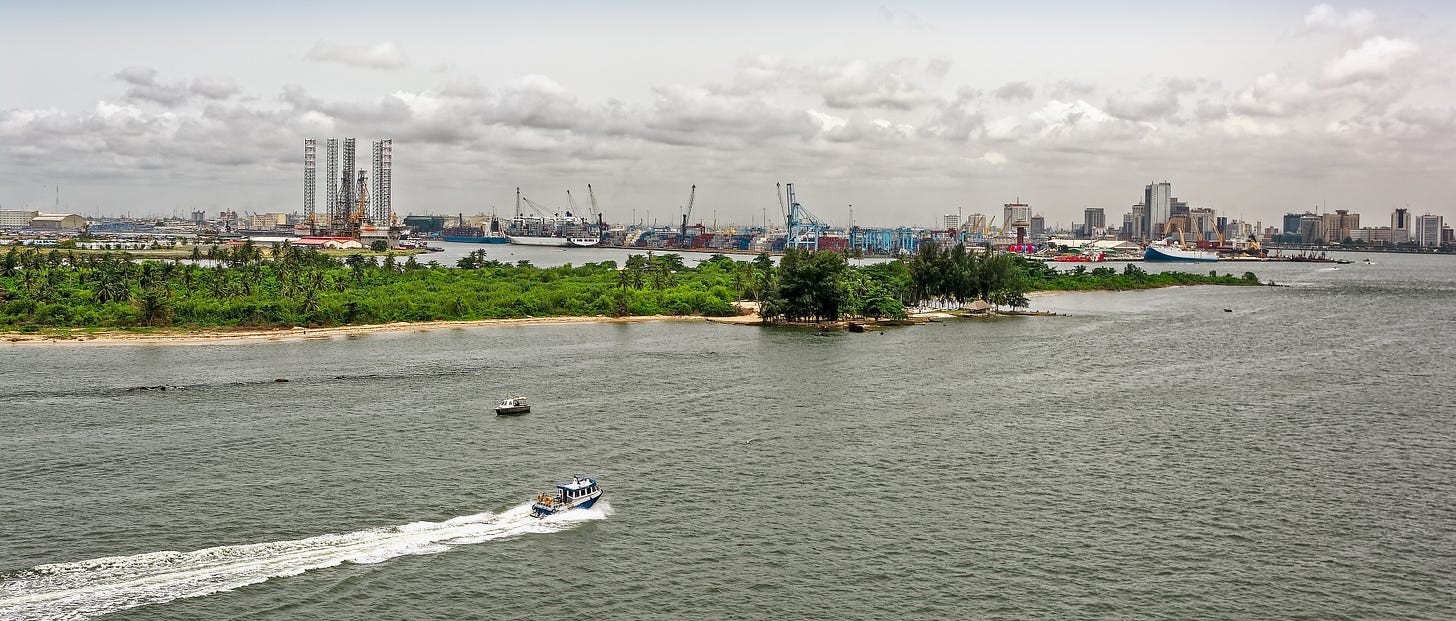Emerging Markets Monitor - May 22
Greek Assets Surge on Election, Potential US-China Thaw?, EM Investors Buy Local Currency Bonds, Adani Stocks Sizzle, Africa's Glimmer of Hope
The Top 5 Stories Shaping Emerging Markets from Global Media - May 22
Greek Assets Surge as Vote Puts Nation on Path to Credit Upgrade
Bloomberg
“Greek stocks surged and government bonds rallied as strong election support for market-friendly Prime Minister Kyriakos Mitsotakis put the nation on track to reclaim an investment-grade rating, 13 years after losing it.”
“The benchmark Athens Stock Exchange General Index jumped to its highest level in almost a decade, with a gauge of bank shares rising 16%. The premium investors demand to hold Greek 10-year debt compared with super-safe bonds of Germany fell to the lowest in more than a year.”
“Mitsotakis’s center-right New Democracy received almost 41% of the vote compared with about 20% for the leftist Syriza party of former premier Alexis Tsipras. While Mitsotakis fell short of achieving a majority in parliament, analysts are confident he will secure a single-party government in about a month, when fresh elections take place under a new law that gives the winning party extra seats.”
“Moody’s Investors Service, which ranks the country’s debt at Ba3 — three notches into junk — called the result ‘credit positive,’ in a statement after the vote. The outcome increases the chance of continuity in fiscal and economic policies, Moody’s said.”
“Greece has undergone an economic transformation that’s seen gross domestic product recover close to where it was in 2010. The unemployment rate has more than halved from its peak of 28%, while the nation’s debt-to-GDP ratio dropped faster than any other European country last year.”
“‘The outcome of the vote puts Greece firmly on track to secure an investment grade rating, possibly before the end of the year,’ said Wolfango Piccoli, co-president of Teneo Intelligence in London. ‘While such an upgrade is largely priced in by investors, it will be an important moment as a stigma that has been in place since late 2010 will disappear.’” Bloomberg reports.
Biden Sees Potential Thaw With China After Tough G-7 Statement
Wall Street Journal
“President Biden said Sunday he expected a thaw in relations with China, a day after he and other Group of Seven leaders took steps to tackle what they see as Beijing’s economic intimidation.”
“Biden said at a news conference wrapping up the G-7 meeting in Japan that the U.S. wants to open more lines of communication with China.”
“‘Then this silly balloon that was carrying two freight cars worth of spy equipment was flying over the United States and it got shot down and everything changed in terms of talking to one another,’ Biden said, referring to an incident early this year involving a suspected Chinese surveillance balloon.”
“‘I think you’re going to see that begin to thaw very shortly,’ he said.”
“Biden’s upbeat assessment followed a challenging few months that also included a U.S. warning to China not to arm Russia in the Ukraine war and conflict over a stop-off in the U.S. by Taiwan’s president.”
“White House national security adviser Jake Sullivan held recent talks in Vienna with China’s top foreign-affairs official, Wang Yi, and China’s commerce minister is scheduled to visit the U.S. in coming days.”
“Biden said easing U.S. sanctions on China’s defense minister, Gen. Li Shangfu, was under discussion. Li remains under sanctions levied in 2018 when he ran the People’s Liberation Army’s armaments departments and purchased combat aircraft and missile equipment from Russia.”
“The Biden administration has expressed hope that it could reschedule a visit to China by Secretary of State Antony Blinken, who canceled a planned trip in February over the balloon incident.” WSJ reports.
EM Investors Buy Up Local Currency Bonds As Dollar Debt Loses Allure
Financial Times
“Investors are ploughing money into emerging market local currency bonds, as high interest rates and falling inflation make them increasingly attractive compared with dollar assets.”
“In the first four months of the year, investors withdrew a net $2.65bn from funds holding so-called hard currency — predominantly dollar-denominated — emerging market bonds, but added $5.23bn to local currency bond funds, according to fund flow data provider EPFR Global.”
“The flows mark a reversal of years of investors opting for dollar-denominated debt as a strong greenback broadly drove better and lower-risk returns. This year, the tables have turned with local bonds performing better, as currencies including the Mexican peso and Brazilian real have strengthened more than 10 per cent against the dollar.”
“‘Local markets are far outperforming external debt,’ said Paul Greer, emerging markets debt portfolio manager at Fidelity International. ‘Frankly I think that trend will probably continue for the rest of the year.’”
“Many emerging market central banks started raising their interest rates before the Fed did and were able to tame inflation quicker. For countries where interest rates remain high, that has improved the real yields on offer to investors.”
“Goldman picked Brazil, Hungary and Mexico as its chosen ‘carry candidates’ and warned against the South African rand, which hit a record low against the dollar last week after the US accused South Africa of supplying arms to Russia in a covert naval operation.” The FT reports.
Adani Stocks Power Indian Shares
Reuters
“Indian shares rose on Monday and extended gains for the second consecutive session, led by a surge in Adani stocks and the metals index, while markets monitor U.S. debt limit negotiations after they stalled last week.”
“Nine of the 13 major sectoral indexes logged gains, with the metal index jumping over 3%. The rise in the metal index was led by nearly 19% surge in Adani Enterprises Ltd. The flagship firm of the Adani group of companies has over 17% weightage in the index.”
“All the Adani group stocks surged between 5% and 20%, extending their rally on Monday after India's markets watchdog drew a blank in investigations into suspected violations in overseas investments in the Adani group.” Baharath Rajeswaran reports.
A Glimmer of Hope for Africa in a Tough Global Economy
African Business
“The international economy appeared to recover from the shock of the Covid-19 pandemic and associated lockdown restrictions more quickly than had been expected. Highly effective intervention by governments, central banks and others resulted in 6.2% global growth in 2021. However, supply chain disruption and macroeconomic shortcomings quickly eroded widespread optimism, while the Russian invasion of Ukraine exacerbated the impact of rapidly rising inflation rates.”
“Global growth of 3.4% in 2022 was far lower than the IMF forecast of 4.9%, while African growth was similarly depressed at 3.9%…This perfect storm of overlapping crises is discussed in the recent Africa’s 2023 Growth Prospects: Securing growth resilience in a ‘polycrisis’ world report.”
“…Against this difficult global backdrop, the Afreximbank report forecasts significant growth of 4.1% for Africa this year, roughly in line with other predictions. This growth will be shared across both the continent’s resource-rich and resource-poor economies, but with net-energy exporting countries benefitting from high oil prices. For instance, following four years of recession, Angolan growth of 2.9% in 2022 is expected to rise to 3.5% this year.”
“Nigeria is expected to generate reasonable growth of 3.2% as a result of improved security and oil production, plus a rebound in agricultural output following last year’s devastating floods. On a more negative note, power shortages and other infrastructural shortcomings will see South African growth slow from 2.1% in 2022 to less than 0.5% for 2023, while the South African Reserve Bank will continue extremely aggressive monetary tightening to counter historic levels of inflation.”
“East Africa is expected to be the fastest growing region at 5%, with Rwanda (6.7%) and Uganda (5.9%) leading the way. Southern Africa is the only African region where aggregate GDP growth is expected to decelerate this year, at 2.1%, down from 2.5% in 2022, largely because of the stagnant South African economy.”
“Taking the continent as a whole, the fact that more than 80% of African countries remain highly commodity dependent constrains their trade prospects given that global trade is largely driven by manufactured goods with increasing technological content.”
“Afreximbank is particularly optimistic that the digital revolution will raise productivity and competitiveness to drive investment, with the digital economy contributing almost US$180bn to the continent’s growth by the middle of this decade. Moreover, the African Continental Free Trade Association (AfCFTA) will act as a pull factor that increases the region’s competitiveness as global supply chains are realigned.” Neil Ford reports.
“It is not the critic who counts, nor the man who points out how the strong man stumbled, or where the doer of deeds could have done them better. The credit belongs to the man who is actually in the arena, whose face is marred by dust and sweat and blood; who strives valiantly; who errs and comes short again and again; who knows great enthusiasms, great devotions; who spends himself in a worthy cause; who, at the best, knows in the end the triumph of high achievement, and who, at the worst, if he fails, at least fails while daring greatly, so that his place shall never be with those cold and timid souls who know neither victory nor defeat.” - Theodore Roosevelt








